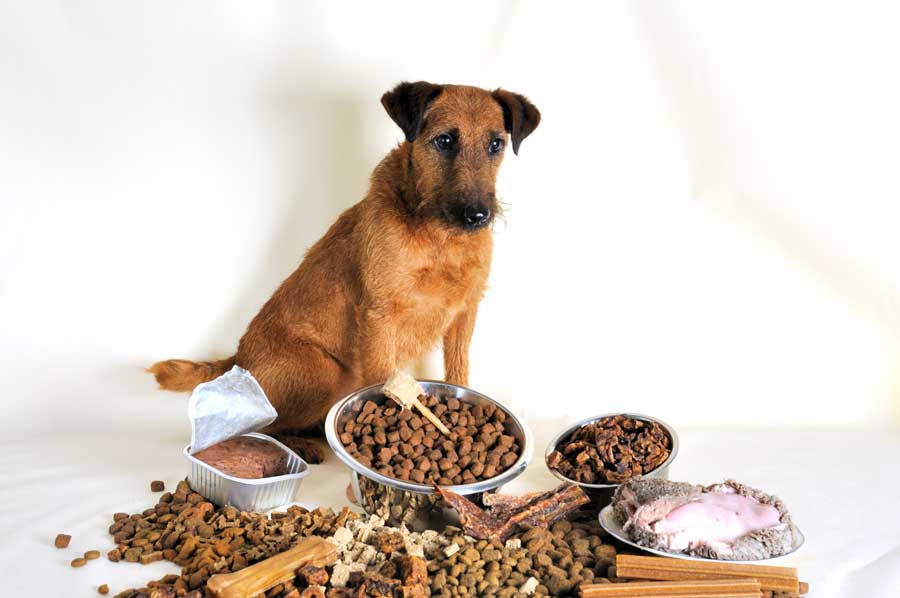In the U.S., nearly 39% of American households have a dog and nearly 26% have a cat. 70% of Americans have at least one pet, and most of them consider their pets to be a part of the family.
When your dog or cat is sick or seems somehow unwell, it can be very distressing. Since they aren’t able to tell you what’s wrong, it’s easy to feel helpless in the face of their problem.
If your pet has been experiencing digestive issues, there are a number of potential causes. However, many pet owners don’t realize the connection between stress and the cat and dog digestive system.
How can stress impact the gastrointestinal tract of your pets? Let’s take a look at everything you need to know.
How Stress Affects the Cat and Dog Digestive System
When a dog or a cat is anxious or stressed, their body responds by increasing stress hormones in their body. This has an impact on their brain but also their gastrointestinal system because of the large number of nerves present in that system.
When stressed out, a pet’s intestines can have increased nerve activity and blood can move away from the intestines. This can lead to vomiting and diarrhea.
A large part of your dog’s immune system is housed in his or her intestinal tract. This means that when they are stressed, it can wreak havoc on both their GI tract and their body’s ability to ward off viruses and diseases.
How Stress Can Impact Pet Eating Habits
If you find that your dog or cat is suddenly no longer interested in food or significantly less interested than before, you’ll want to talk to your vet. It is possible that this is caused by an underlying health condition, but it could also be because of stress.
Are you wondering how stress can impact your pet’s overall health and well-being? Check out this article.
How Stress Can Affect Pet Weight Management
If stress is leading your pet to eat less, you might notice that they are losing weight.
In dogs, weight loss is considered to be significant clinically if the loss isn’t associated with dehydration or fluid loss and they lose more than 10% of their normal body weight. While there are a number of things that can lead to your dog losing weight, such as changes in their diet and environment, stress and anxiety can also lead to drastic weight loss.
If a cat experiences drastic weight loss, it could also be because of anxiety, stress, or depression. Cats might be upset by things like other animals in the feeding area, excessive noise, the food dish being too close to the litter box, or dirty food dishes.
Dog Stress Symptoms
Dogs can become stressed much like humans can. Unfortunately, though, they can’t speak up to express how they feel. There are a number of signs and symptoms you can look out for, though, if you’re concerned that your dog is feeling stressed.
These include:
- Whining or barking: While this can be a form of normal self-expression, it could also indicate stress or tension
- Drooling, licking, and yawning: Dogs can also yawn when they’re bored or tired, but a stressed yawn is typically more intense and longer than a tired yawn
- Changes in ears and eyes: Their pupils might be dilated, they might blink rapidly, and their ears might be pinned back against their head
- Changes in body posture: A dog that cowers, tucks their tail, becomes rigid, or shifts his weight to his rear legs might be stressed
- Shedding: When dogs are anxious, the amount that they shed increases
- Panting: If you notice that your dog is panting when he or she hasn’t exercised recently, it might be a sign of stress
- Bodily function changes: Nervous dogs might feel the need to urgently go to the bathroom, lose their bowel function, or refuse food
- Displacement or avoidance behavior: Stressed dogs might “escape” by shifting their attention to something else
- Escape or hiding behavior: A dog that is stressed also might hide or engage in diversion activities
Many of these signs of stress in dogs aren’t necessarily only indicative of stress. In order to be able to tell the difference between stress symptoms and other behavior, it’s important to be familiar with the regular demeanor of your dog.
Relaxed dogs tend to have forward-facing or semi-erect ears, round eyes, and a soft mouth. Additionally, their weight is evenly distributed on their paws.
Signs of Stress in Cats
While stress can impact the gut health of both dogs and cats, they don’t necessarily display stress in the same way. Some signs you’ll want to look out for include:
- Diarrhea
- Inappropriate elimination
- Hiding or extra clinginess
- Inappropriate scratching
- Over-grooming, sometimes even creating patches without fur
- Decreased appetite
Much like with dogs, you will want to become familiar with the normal behavior of your cat in order to notice if they are acting unusual. The personality of cats can vary greatly between individual animals, so one cat being skittish might be more normal while it might be quite odd for another.
Digestive Issues Might Just Be a Sign Your Dog or Cat Is Stressed Out
If you notice that your pet is having digestive problems, it’s entirely possible that it is being caused by stress. In humans, dogs, and cats, the hormones released when we are stressed out can wreak havoc on our gastrointestinal system.
Gaining a greater understanding of the relationship between stress and the cat and dog digestive system is helpful when you own a pet. However, it’s always a good idea to consult with your vet so you can rule out other underlying health conditions if your pet is exhibiting strange behavior or experiencing gastrointestinal distress.
If you found this article useful, click here to learn about the impact that stress has on elderly individuals.

